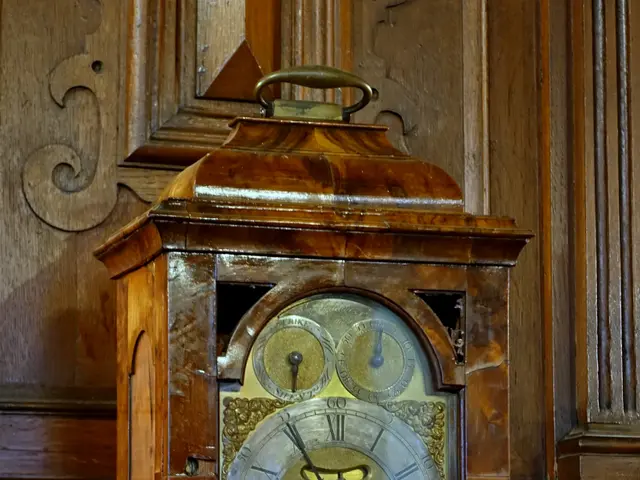Climate Talks in Brazil Face Intense Pressure as USA Withdraws from COP30
As the countdown to COP30 begins, scheduled for November 2025 in Belém, Brazil, the world watches with a mix of anticipation and caution. This pivotal meeting is poised to shape the future of climate diplomacy, with the Brazilian presidency emphasizing the building of a "global infrastructure of trust" [1].
Progress has been made in preparatory talks, particularly in advancing negotiations on the Global Goal on Adaptation (GGA), the Global Stocktake (GST) implementation, and the Just Transition Work Programme (JTWP) [1]. These developments could set a constructive tone for COP30 outcomes.
However, the broader geopolitical and institutional context presents significant challenges. The US, historically the largest emitter, is withdrawing from the Paris Agreement as of January 2026, creating a vacuum in global leadership and complicating efforts around climate finance and global cooperation [2]. The US's absence, combined with the UNFCCC's financial and legitimacy crises, contributes to a growing call for reform to enhance effectiveness, civil society participation, and reduce fossil fuel industry influence [2].
Brazil positions itself as a defender of multilateralism and hopes COP30 will reinvigorate climate talks, emphasizing broader civil society and Indigenous participation. However, concerns remain about the limited influence of Indigenous representatives in real decision-making [3]. Additionally, the history of hosting COPs in authoritarian contexts has raised concerns about restrictions on freedom of expression and assembly, making Brazil’s role in ensuring civil liberties during COP30 particularly important [2].
In the realm of finance, the international civil society is increasing pressure through the #FillTheFund campaign for the fund to be adequately funded [1]. The global stocktake process is debating whether it should focus mainly on climate finance or also pursue other results [1]. The Brazilian COP30 presidency is considering launching the Tropical Forests Forever Facility (TFFF), a new financing tool for protecting tropical forests [1]. Unlike traditional carbon compensation models, the TFFF is a public-private investment fund that invests in government bonds and other assets, with returns used to make annual payments to countries with tropical forests.
Another crucial issue is the debate on losses and damages. The first global stocktake ended in 2023, and it is being debated whether losses and damages should be included as a separate topic in future stocktakes [1]. A fund for losses and damages (FRLD) was established at COP28, but it is severely underfunded and expected to present a long-term fundraising strategy before COP30 [1].
Lastly, the role of market-based approaches, particularly under Article 6.2, is a contentious issue. While only non-market-based approaches were discussed at the interim negotiations in Bonn 2025, there is a risk that market-based approaches may be introduced through the back door [1].
As COP30 approaches, the world awaits a renewed commitment to addressing climate change, with a focus on inclusivity, justice, and transformative outcomes. The challenges are significant, but with the right leadership and cooperation, COP30 could mark a turning point in the global fight against climate change.
[1] Climate Home News. (2025). COP30: What to expect from the pivotal climate summit in Brazil. Retrieved from https://www.climatechangenews.com/2025/08/01/cop30-what-to-expect-from-the-pivotal-climate-summit-in-brazil/
[2] Carrington, D. (2025). COP30: Brazil hopes to reinvigorate climate talks, but challenges loom large. The Guardian. Retrieved from https://www.theguardian.com/environment/2025/aug/01/cop30-brazil-hopes-to-reinvigorate-climate-talks-but-challenges-loom-large
[3] Reuters. (2025). Indigenous groups say they are being excluded from COP30 climate talks in Brazil. Retrieved from https://www.reuters.com/business/environment/indigenous-groups-say-they-are-being-excluded-cop30-climate-talks-brazil-2025-08-01/







